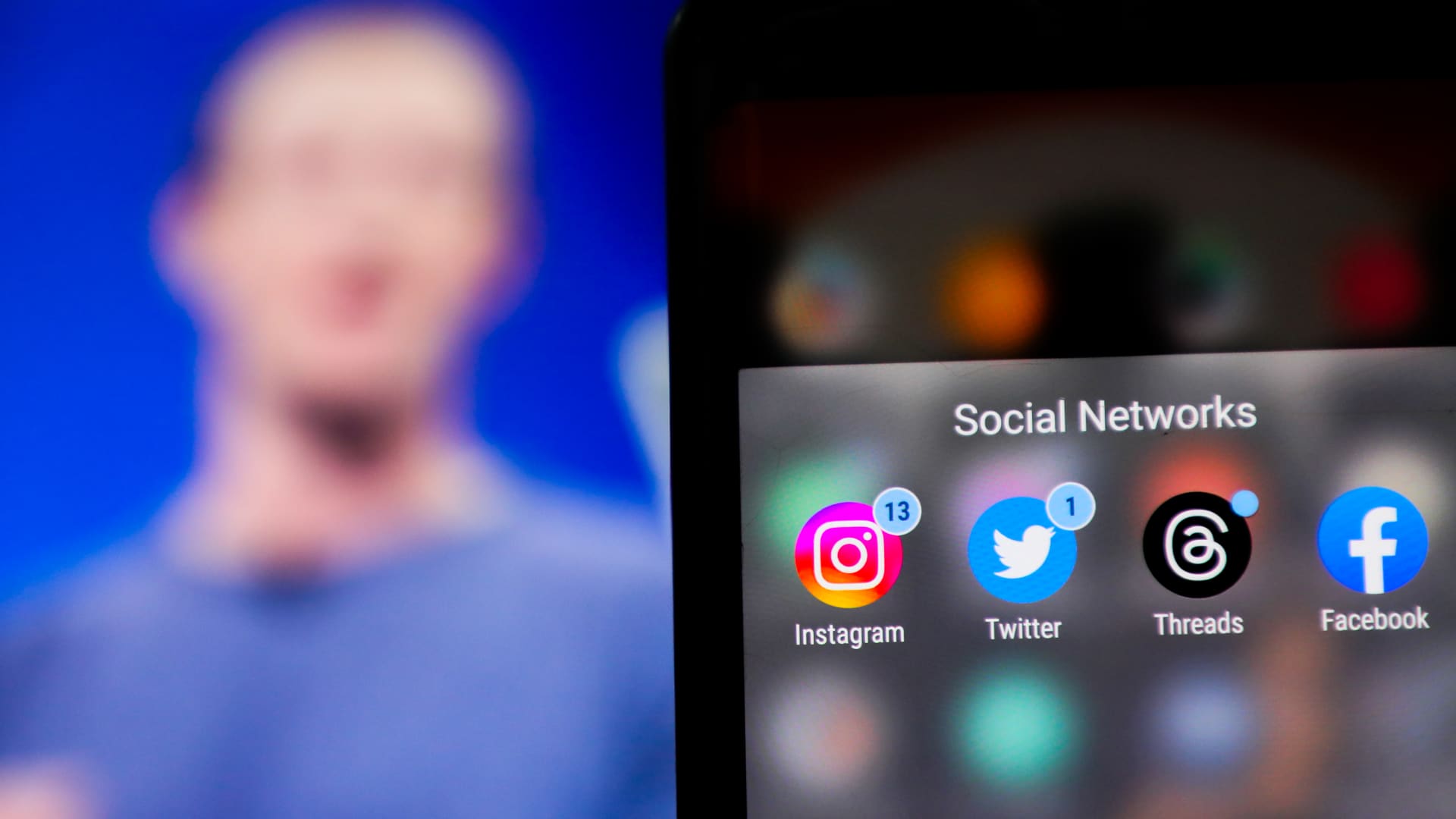

Thilina Kaluthotage | Nurphoto | Getty Images
Meta said Wednesday evening that the personal calls and chats of every Messenger user will be encrypted by default, representing a major privacy update that makes the service more similar to its sibling WhatsApp.
Because of the encryption technology “nobody, including Meta, can see what’s sent or said, unless you choose to report a message to us,” Loredana Crisan, the head of Messenger, wrote in an accompanying blog post.
Crisan said that it will take an unspecified amount of time for Meta to encrypt all Messenger chats, and that the company relied on several “cryptographic principles” to inform its strategy, including one developed in-house and another that’s utilized by the popular Signal encrypted messaging app.
Since 2016, Messenger users could choose, or opt-in, to safeguarding their chats via a process referred to as end-to-end encryption, which scrambles peoples’ communications so that third-parties can’t eavesdrop and access the data. Although Meta’s other messaging app, WhatsApp, also utilizes end-to-end encryption, privacy advocates have generally considered Signal to be a more secure communication service because it collects less user data.
“After years of work rebuilding Messenger, we’ve updated the app with default end-to-end encryption for all personal calls and messages,” Meta CEO Mark Zuckerberg wrote in a Facebook post on Wednesday. “Huge congrats to the team on making this happen.”
In 2019, Zuckerberg said the social networking company would bring encryption technology to all private communications in its family of apps, underscoring a major privacy push that the executive attributed to changing consumer habits in which people “want to connect privately in the digital equivalent of the living room.”
“I believe the future of communication will increasingly shift to private, encrypted services where people can be confident what they say to each other stays secure and their messages and content won’t stick around forever,” Zuckerberg said at the time.
Zuckerberg detailed his more privacy centric vision for Facebook following a string of data-privacy blunders, including the Cambridge Analytica scandal which damaged the company’s reputation.
Over the years, Meta debuted more privacy related updates, including letting some Instagram users in a few countries opt-in to having their direct messages encrypted via a test in 2021.
In 2022, Meta conducted a test on Messenger that let users back up their end-to-end encrypted conversations in case they needed to access them on another device. Although the test came shortly after the social networking company provided Messenger chat histories to Nebraska law enforcement investigating an alleged illegal abortion in the state, a Meta spokesperson said at the time that they were unrelated.
Meta’s latest encryption announcement will likely add to an ongoing debate involving privacy and the ability of law enforcement to conduct investigations, as exemplified in 2016 when the Federal Bureau of Investigation wanted Apple to develop software to help then unlock the iPhone of suspects that were part of a major shooting in San Bernardino, California. Apple refused to comply, saying at the time “The same engineers who built strong encryption into the iPhone to protect our users would, ironically, be ordered to weaken those protections and make our users less safe.”
More recently, leaders at WhatsApp and Signal said their services would no longer be available in the United Kingdom if the lawmakers enacted laws that would weaken encryption. The U.K. government claimed that Meta’s encryption push would make it more difficult to detect online child abuse activities.





